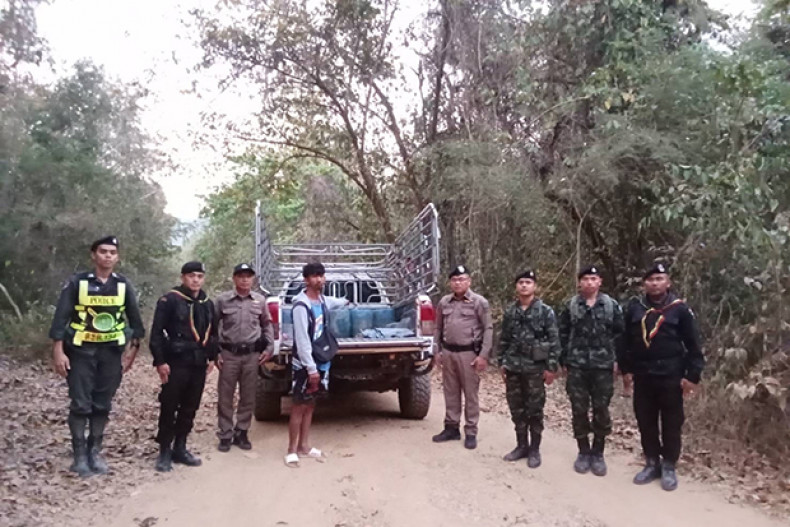Karen ethnic militia to expel online scammers
In addition to China and Thailand's efforts against illegal activities proliferating in Myanmar, the Democratic Karen Buddhist Army has now called on Chinese nationals involved in criminal activities to leave its territory by the end of the month. Thousands of foreigners from Africa and South Asia have been trafficked into Southeast Asia to work in conditions of modern slavery.
Bangkok (AsiaNews) – An ethnic Karen militia active in the border areas between Myanmar and Thailand has issued an ultimatum to Chinese nationals involved in criminal activities in the territory under its control, ordering them to leave by 28 February.
In a statement, the Democratic Karen Buddhist Army (DKBA) warns that those who do not comply will face consequences under local law.
The expulsion order specifically concerns people who run gambling houses, restaurants and other illegal trade or transactions in Phayathonezu, a township in Kayin State.[*]
The DKBA also announced stricter controls on Chinese nationals. Many of them are exploited by their own compatriots, and the Karen militia wants to keep them out of the territory it controls.
The ultimatum comes after a first statement released yesterday, in which the DKBA tried to allay growing concerns in the local population.
Recently Phayathonezu and four other border locations in Myanmar have experienced power blackouts, fuel shortages, and loss of Internet connectivity after Thailand cut off supplies.
Known as “scammer towns”, these places are sadly famous for their gangs, mostly of Chinese origin, who exploit thousands of people, often recruited by deception or force, to work in slave-like conditions, victims of threats and torture.
A case in point is that of a Kenyan man, forced to operate through threats and torture in cryptocurrency trafficking. He managed to escape, walking barefoot 10 kilometres across the border into Thailand where he reported that 23 other Kenyans were trapped at the same facility, among a thousand from Bangladesh, Ethiopia, Pakistan and Sri Lanka.
Given the emergency, China and Thailand have leaned on Myanmar's military regime and the country’s ethnic militias, calling for concrete actions to rid the border areas of a scourge that feeds not only cybercrime, but drug trafficking, often managed by the same organisations that operate in human trafficking.
In recent months, thousands of foreigners from different countries have been identified or freed from scammer networks, with some repatriated.
However, the scale of the problem and the absence of effective countermeasure by Myanmar’s military regime, so absorbed in the ongoing civil war, continue to make the situation extremely critical and complex.
[*] Formerly known as Karen State.







.png)










